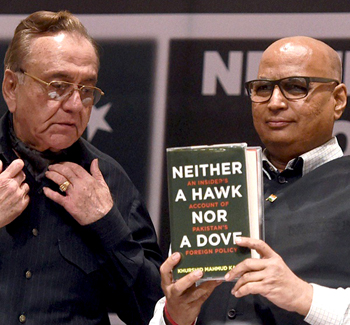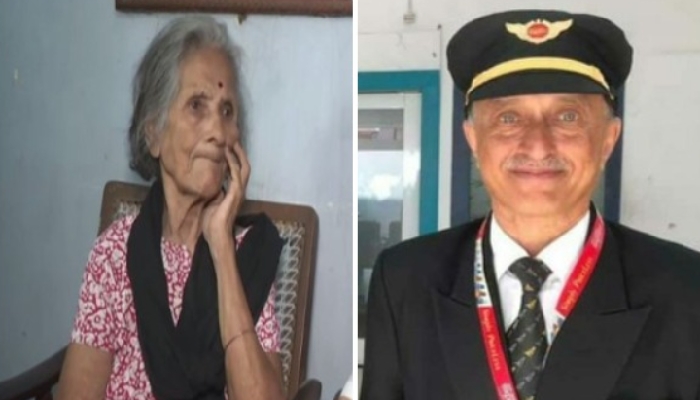 Mumbai, Oct 13: This is the way the world ends
Mumbai, Oct 13: This is the way the world ends
This is the way the world ends
This is the way the world ends
Not with a bang but a whimper.
-- T. S. Eliot (The Hollow Men).
There is no way of knowing if the Shiv Sena's top brass has read these lines. But their protest against former Pakistan foreign minister Khurshid Mahmud Kasuri's book launch in Mumbai ended just like the concluding lines.
On Monday morning, senior journalist Sudheendra Kulkarni, chairman, Observer Research Foundation (ORF), and the event's organiser, had his face blackened by Shiv Sainiks. Later, Shiv Sena's Rajya Sabha MP Sanjay Raut, who is the executive editor of party mouthpiece Saamna, justified the act as a "mild and democratic attack".
Bucking rumours that the Sena had decided to withdraw its protest against the book after chief minister Devendra Fadnavis intervened, Raut, who is seen as a hawk in the party, threatened to disrupt the launch. However, as the day unfolded, the Sena's threat fell flat with the event passed off peacefully.
Shiv Sainiks gheraoed Kulkarni and abused him for being "anti-national" and smeared black paint on him outside his house. Kulkarni said the Indian flag, which he was wearing on his shirt, was also blackened, and this was a national affront. Later, Kulkarni, the black paint on his body and clothes intact, flanked Kasuri as he spoke to the media.
Kulkarni had met Shiv Sena president Uddhav Thackeray on Sunday and requested him to call off the protest. The Shiv Sena opposes cultural and sports ties with Pakistan for sponsoring terrorism in India. Last week, the Sena had forced the organisers of Pakistani ghazal maestro Ghulam Ali's concert in Mumbai and Pune to call off the programme.
However, Raut justified the blackening as a "mild and democratic attack."
"Why wasn't anyone else smeared with tar? Are Shiv Sainiks mad? They are mad with patriotism. They are angry at this agentgiri of Pakistan," he charged, adding that they were reflecting the national sentiment.
Raut pointed out that while Fadnavis had said they would allow the programme on the understanding that no anti-India statement would be made, they had sent a letter to him containing evidence of Kasuri's anti-India comments during his ministerial tenure. Moreover, Kasuri had also reached out to Kashmiri separatists like the Hurriyat Conference and asked them to unite and counter India to Pakistan's advantage.
"The chief minister must tell if Pakistani leaders like Kasuri and… Pakistani agents like Sudheendra Kulkarni are anti-Hindustan or not," charged Raut while launching personal attacks, referring to how the 26/11 terror attacks had taken a toll on the army, the police and the common people. He added that the Sena had opposed Pakistan for almost 30 years, and, for them, this was not a political battle, but one linked to the country.
"Laying out the red carpet for such a person in Mumbai… is treason. Strict action must be taken against those who called him," demanded Raut, adding that many "staunch nationalists" like those in Shiv Sena were against the event.
"People like Sudheendra Kulkarni, who are considered thinkers, are even more dangerous than Kasab. It is possible to fight Kasab, but not these hidden Kasabs," alleged Raut.
"Did we tell you and do the morning programme?" countered Raut, when questioned about whether the Sena would disrupt the programme. However, there were many red faces within the Sena as the event passed off without any major hitch, under heavy police bandobast.






Comments
Add new comment